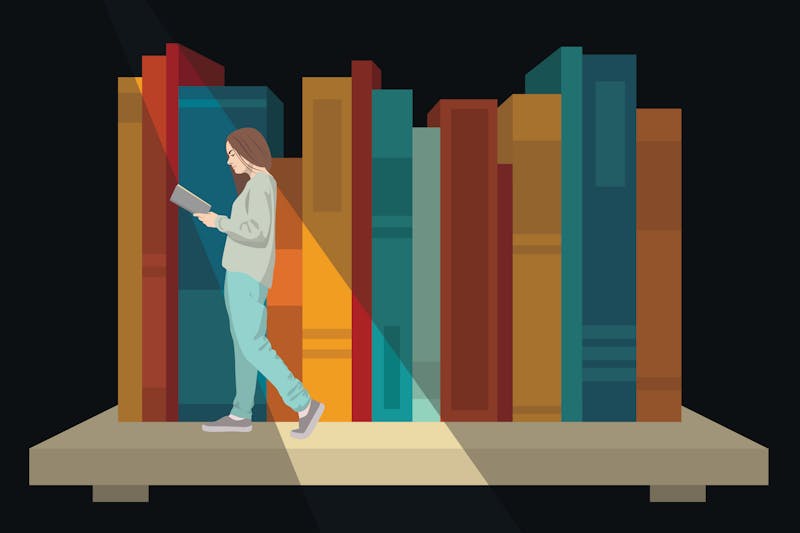“Have you heard? Colleen Hoover is retiring!”
The eventually disproved rumor of Hoover’s retirement has been both celebrated and mourned by readers, but the discourse highlights a deeper pattern in contemporary literature her romance novels have catalyzed. Once carrying a varied array of genres and authors, the center tables of Barnes and Noble and much of the online book community are now plagued by a very specific archetype of book: blockbuster romances, which either detail lackluster characters, prose and plots, or include complex relationships that aren’t always handled well.
Hoover’s own “November 9,” classified as romance, featured an assault scene between the eventual couple in the novel; it wasn’t addressed properly and was removed from later print copies. Books detailing heavy topics have an incredibly important place in literature and should be read as a way to process or empathize with real experiences. Yet, the popularity of works which label abusive relationships as romantic and idyllic is indicative of a willingness to choose entertainment over mindfulness.
This labeling is a common occurrence among social media users, who justify, minimize or glamorize the problematic elements of fictional relationships by applauding and excusing abusers. They also call their reading of less serious romances featuring common tropes, often the selling point of said novels, strictly frivolous. When challenged about their reading choices, online fans of the genre say all books are equally valid and worthy, and to say otherwise is pretentious. The side effect is declining media literacy and the reduction of reading to exclusively for entertainment.
Books have long been vessels for challenging perspectives and expanding your schema; the messaging and choices within reading communities shape our attitude toward real world issues. The authors of many of these books are skilled and their literature has merit, as does all creative work. However, a reader exclusively choosing novels in the name of decompressing from daily life doesn’t solely concern mediating burnout and exhaustion — it leads to forgetting the holistic value of literature and allows mediocrity in publishing.
The title of an “avid reader” applies if you genuinely enjoy the act of reading and comprehending, not if you’re reading for a serotonin boost via trope fulfillment. Books influence the way we communicate with others, which spells trouble for the adults and children picking up contemporary, potentially problematic romance novels.
This isn’t a call for people to stop reading this subset of literature — it’s a suggestion to expand your horizons. For as many books that call abuse romantic, there are just as many that detail more nuanced representations. The publishing of largely the same genres for the same audiences formulaically devalues reading and prioritizes short term profits over the integrity of publishing. Every page of a good novel serves a purpose — they aren’t fodder to support a couple cliche scenes.
We’ve grown too comfortable reading regurgitated and harmful stories. As long as $16 abuse-filled drivel is overvalued and over-consumed, those Barnes and Noble tables may never be filled with the wonder and freshness they once were. An online hive mind is forming where users are en masse desensitized and reverent of damaging, homogenous, often subpar books.
There is such a thing as objectively good literature and an objectively more valuable book. In our race for accessibility, we’ve forgotten that classics and ranges of literature dictate our language and culture. Any book you read wasn’t made in a vacuum. It was influenced by the creators of our language, the greats of its genre and contemporary publishing choices. It is not pretentious or intolerant to say certain literature is relatively less skillful or tasteful. Your book choices are a personal prerogative, but acknowledge the importance of feeding your mind worthwhile literature.
